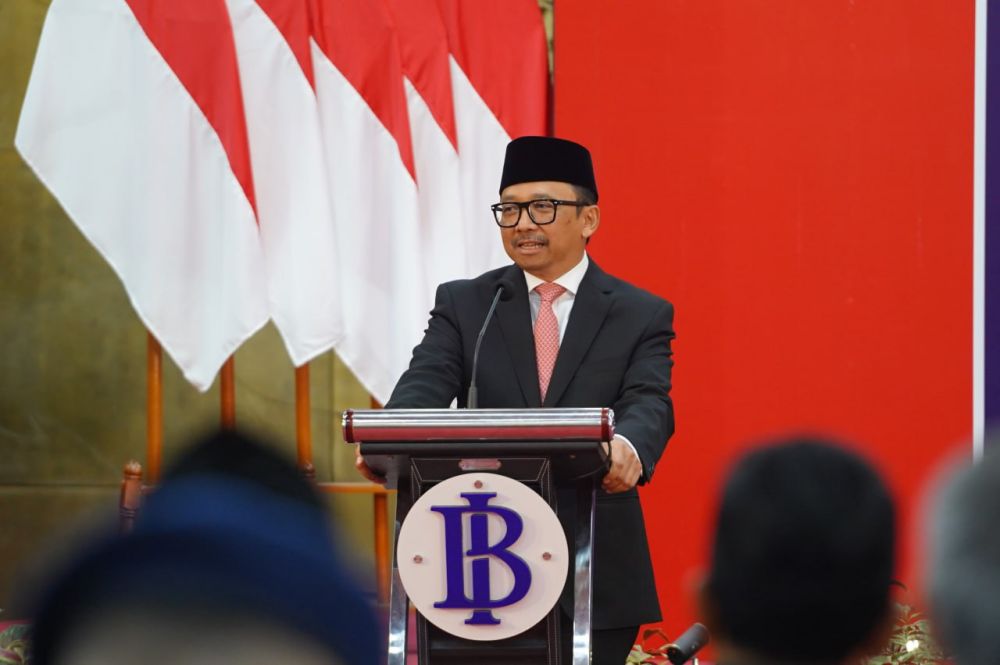Bank Indonesia Leads Regional Dialogue on Banking Supervision and Policy Innovation
JAKARTA,RAKYAT NEWS — Bank Indonesia (BI) recently hosted a crucial meeting with financial authorities from East Asia and the Pacific to discuss pressing challenges and recent developments in the financial sector. This important gathering, known as the 56th Executives’ Meetings of East Asia Pacific Central Banks (EMEAP) Working Group On Banking Supervision (WGBS), took place from August 29-30, 2024, in Bali. BI is currently serving as the chair of EMEAP for the 2024-2026 term.
Deputy Governor Juda Agung emphasized the significance of the meeting, highlighting its focus on enhancing financial stability, promoting policy innovation, and strengthening banking supervision practices. The conference aimed to foster greater cooperation and synergy among central banks and financial authorities across the region.
Key topics discussed included the rapid advancements in financial digitalization, the ongoing transition to green finance, updates on Basel Core Principles, and the increasing importance of cybersecurity. These themes were deemed crucial for maintaining and improving the stability and effectiveness of financial systems.
The EMEAP WGBS members reached a consensus on several key initiatives. These initiatives are focused on three main areas: advancing sustainable finance, refining macroprudential policies, and supporting banking recovery efforts.
One of the major outcomes of the meeting was the agreement to enhance the capacity of financial authorities. This involves prioritizing risk management and digitalization within the financial sector, which will be central to the group’s future collaborative efforts.
Juda Agung pointed out that the global financial landscape is undergoing significant transformation, driven primarily by rapid technological advancements and the push toward green finance. These changes present both opportunities and challenges, necessitating adaptive policy responses and effective supervisory practices.
In terms of digitalization, the forum stressed the need for regulators to encourage innovation while ensuring robust risk management, particularly in cybersecurity. The swift pace of technological progress requires a balanced approach to promote innovation without compromising system security.
Regarding the green finance transition, regulators are encouraged to support this shift through collaboration with industry sectors. This includes improving sustainability disclosures, enhancing reporting practices, providing relevant data, and strengthening cooperation among financial authorities.
The conference also underscored the importance of effective cyber risk management. To address these concerns, Bank Indonesia has developed a comprehensive cybersecurity framework based on three pillars: governance, prevention, and response. This framework sets minimum standards to protect the financial sector from potential cyber threats.
The EMEAP WGBS forum highlighted the need for ongoing collaboration and information sharing among member institutions to address emerging challenges effectively. This collective effort aims to enhance the overall resilience of the financial systems in the region.
Participants from various countries contributed to the discussions, representing a wide range of financial regulatory bodies. The EMEAP WGBS includes members from the Reserve Bank of Australia, Australian Prudential Regulation Authority, People’s Bank of China, National Financial Regulatory Administration, Hong Kong Monetary Authority, Bank Indonesia, Financial Services Authority, Bank of Japan, Japan Financial Sector Agency, Bank of Korea, Korea Financial Supervisory Service, Bank Negara Malaysia, Reserve Bank of New Zealand, Bangko Sentral ng Pilipinas, Monetary Authority of Singapore, and Bank of Thailand.
In conclusion, the meeting was a significant step toward addressing the complex and evolving challenges facing the financial sector. The initiatives and agreements reached are expected to contribute to greater financial stability and innovation in the Asia-Pacific region. (Uki Ruknuddin)



























Tinggalkan Balasan